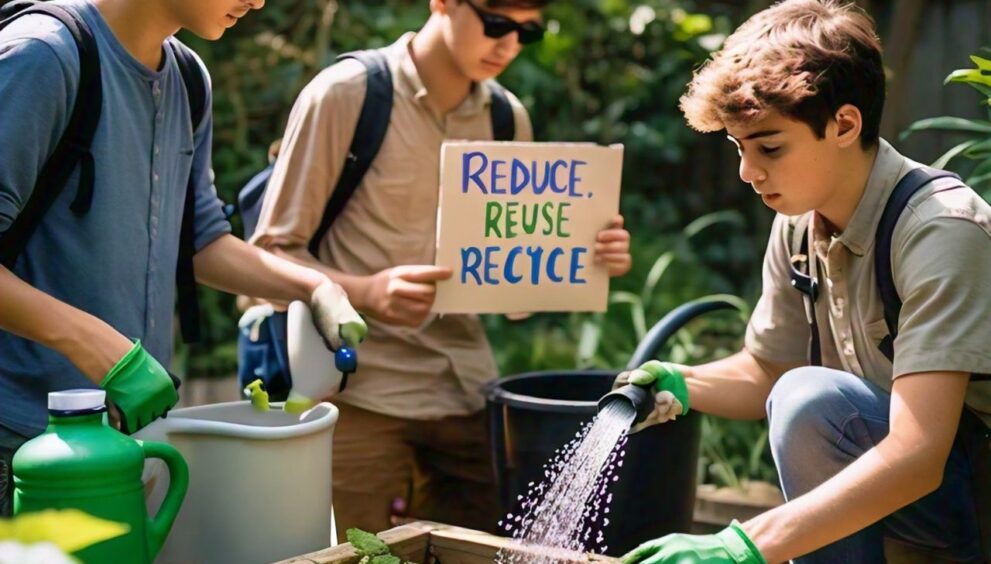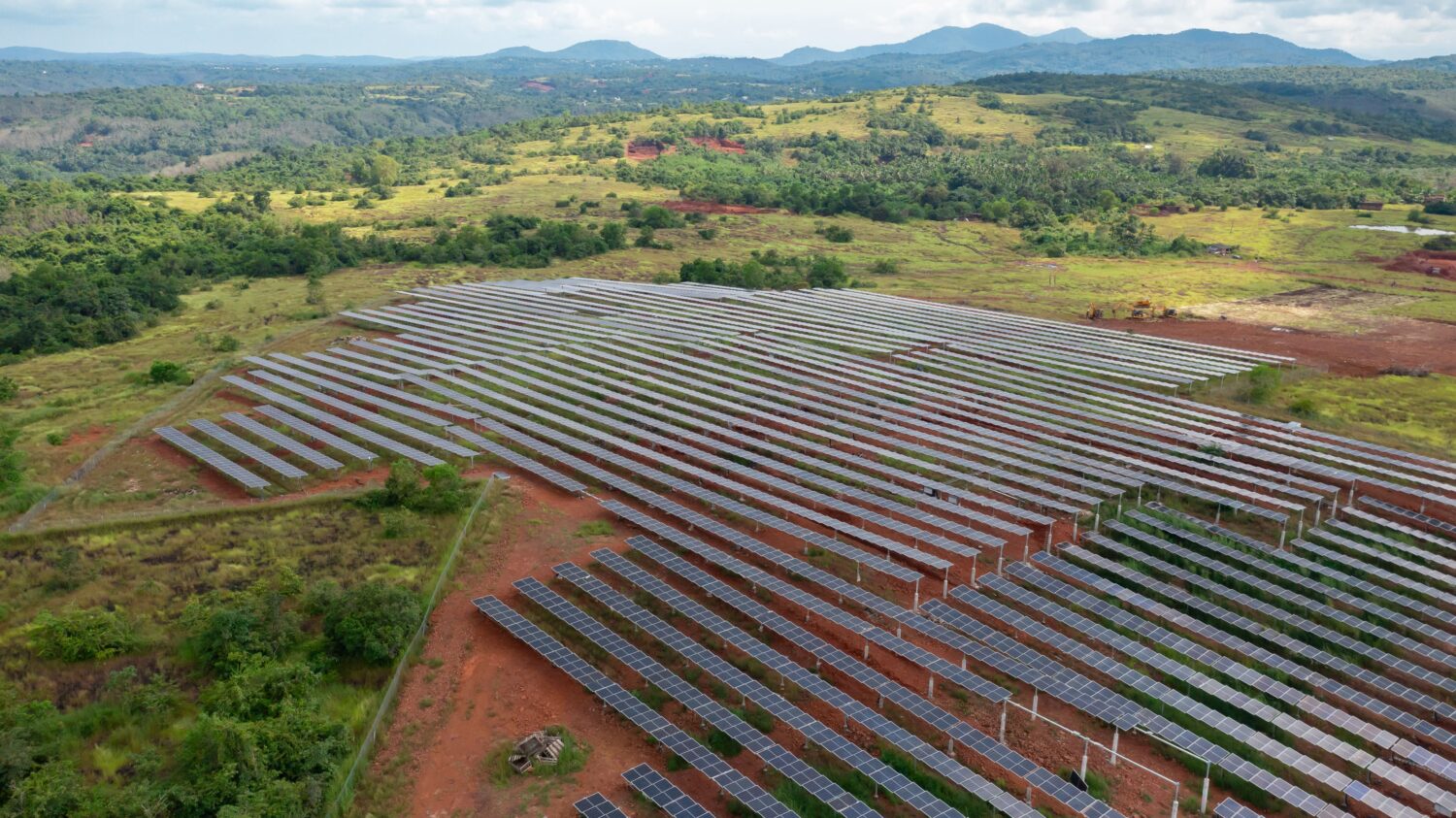Gen Z: Eco-Warriors

As the world grapples with the escalating challenges of climate change and environmental degradation, a new breed of eco-warriors is emerging from the ranks of the workforce — Gen Z.
In a time when the global community is increasingly focused on the critical issues of climate change and environmental sustainability, a new cohort of employees is entering the workforce with a fresh outlook. Gen Z, born from the mid-1990s to the early 2010s, is joining the professional world with a commitment to environmental sustainability. Known as digital natives, this generation is harnessing their distinct skills and viewpoints to spearhead a green transformation within the corporate sector. Their unique perspective, shaped by their upbringing and digital fluency, is reshaping how businesses tackle their environmental duties, offering new and innovative solutions.
The Gen Z’s Environmental Consciousness
Gen Z’s deep-seated environmental consciousness is a product of their upbringing. Having grown up in the age of the internet, they have been exposed to a constant stream of information about climate change, pollution, and the devastating impacts of human activity on the planet. They are the first generation to come of age fully aware of the climate crisis and its potential to define their future. This awareness has not only shaped their values but has also galvanized them into action. As an illustration, the Gen- Z HR manager of a prominent organisation shared with me that she has personally undertaken the initiative to introduce reusable cups in the workplace and implement other strategies like green gifting (portable plants); this depicts that Gen Z would hardly wait for the action to trickle down; they are the believers of “grassroots movements.”
Innovative initiatives
Gen Z’s growing trend of voluntary green behavior is not just about advocating for eco-friendly practices within their organizations. They lead by example, initiating recycling programs, promoting energy-saving initiatives, encouraging sustainable commuting, and supporting ethical sourcing. These actions are not just symbolic, but they are producing tangible results, demonstrating that individual actions can indeed lead to a collective impact.
Gen Z employees are demonstrating an unprecedented level of involvement in environmental action. A friend who works for a leading construction company articulated that sustainability is not merely a professional responsibility but a way of life for her; she further states that by being in this sphere, she not only wants it to be limited to herself but also transcend the same to those around her for better reimagination and relationship with the planet. She and her colleagues are formulating various environmental initiatives and promoting eco-friendly practices, setting an example many have yet to follow.
Their engagement extends beyond mere participation in environmental benefit programs; they are volunteering for these activities with no concern for micromanagement or expectation of rewards. This intrinsic motivation to contribute to the planet’s health surpasses traditional incentives such as awards and recognition, highlighting a genuine commitment to environmental stewardship.
Call to action
It is time for a collective reassessment of our environmental stewardship. Employees, especially those from Gen Z, have the power to drive meaningful change within their organizations and beyond. By embracing sustainability as a core value and taking proactive steps, both individuals and corporations can play a crucial role in safeguarding the planet’s future.
Empowering young employees means equipping them with the tools, resources, and platforms to make a tangible impact. It involves fostering a culture where sustainability is not just a goal but a fundamental part of business operations, which reminds us that sustainability is not just a buzzword but a critical component for long-term success and responsibility.
One respondent insightfully stated, “I need to save the environment for myself and other living beings so that the beauty of nature can be restored, which is indeed a lasting heritage for the upcoming generations. This is also our commitment to the dawning era of Gen Alpha, the heirs to our conservation legacy.” This sentiment reflects a profound understanding of preserving the world’s beauty. Despite this enthusiasm, the transition from words to actions is challenging.
Young employees are ready to take on part-time environmental jobs and are willing to invest their own money to protect the planet’s serenity.
A beacon of hope
As the world confronts unprecedented environmental challenges, the actions of Gen Z employees offer a beacon of hope. By embracing sustainability as a core value and empowering young change agents, businesses can spearhead the creation of a more resilient and sustainable future for all. As environmentalists and thought leaders have noted, the planet does not need more successful people but rather more peacemakers, healers, restorers, storytellers, and lovers of all kinds. Gen Z employees are ready to embody this ethos, and their actions could catalyze the urgent need for transformative change in our world.
Gen Z’s eco-warriors are not just the future; they are the present, actively shaping the world in which we live. Their dedication to environmental sustainability in the face of daunting environmental challenges is unwavering. As we watch Gen Z lead the charge towards a more sustainable future, it becomes clear that the eco-warriors of Gen Z are not just dreaming of change—they are making it happen, one green initiative at a time. Their legacy will not just be measured by the policies they enact or the initiatives they launch but by the enduring impact of their actions on the planet and future generations.
About The Author
The authors of article are Manisha Pillai – FPM Scholar, Organizational Behavior/Human Resources, and Prof.Tanvi Mankodi – Assistant Professor, Organization and Leadership Studies, SPJIMR
Disclaimer: The views expressed in the article above are those of the authors’ and do not necessarily represent or reflect the views of this publishing house. Unless otherwise noted, the author is writing in his/her personal capacity. They are not intended and should not be thought to represent official ideas, attitudes, or policies of any agency or institution.



















































































































































































































































































































































































































































































































































































































































































































































































































































































































































































































